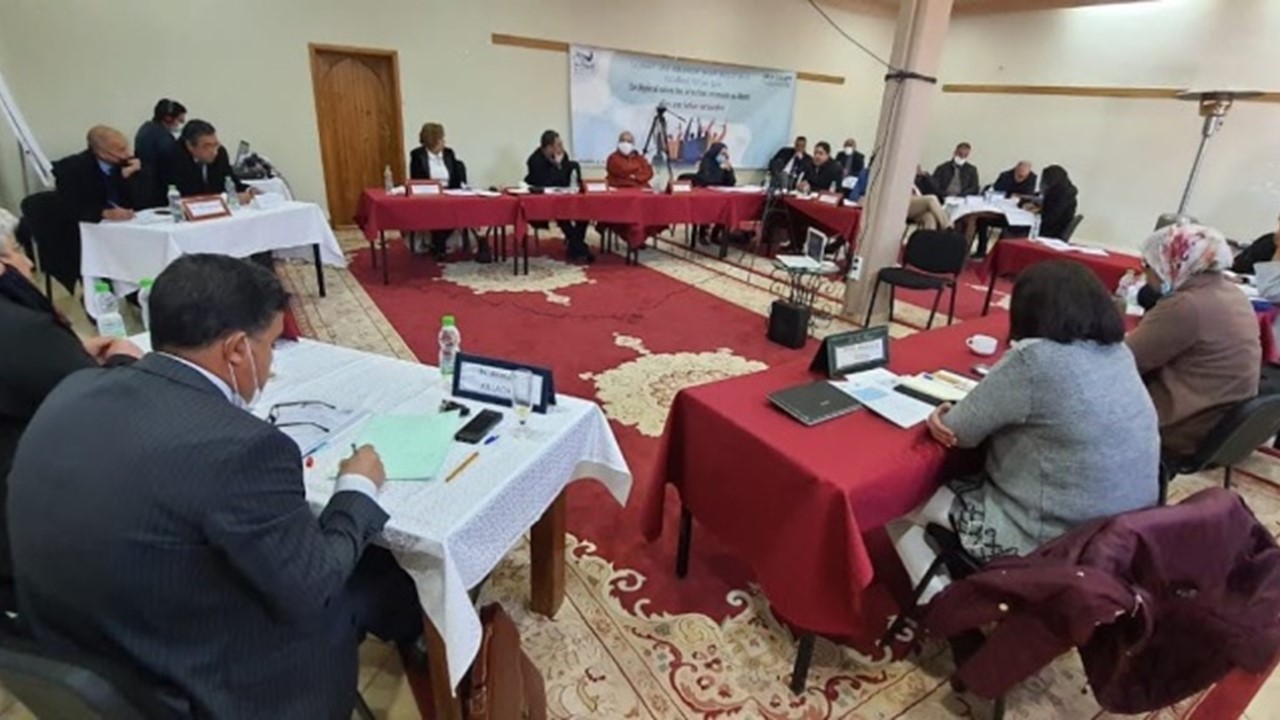As part of the African campaign to decriminalise petty offences, the ADALA (Association “for the right to a fair trial”), with the support of the Open Society Foundations, officially launched the campaign in Morocco on January 15, 2021, in Marrakech.
The first action of the campaign, a seminar under the theme “The decriminalisation of petty offences in times of pandemic: challenges and prospects of the penal and judicial system in Morocco” brought together institutional actors, professionals of Moroccan law, and representatives of Civil society.
This meeting also made it possible to initiate the creation of the advocacy and memorandum development network and the establishment of a multi-stakeholder civil society platform, a force for making proposals for the adoption of alternative detention penalties and the reform of the penal and judicial system.
In Morocco, the campaign is part of the continuity of an unprecedented context where the Moroccan State has declared a “state of health emergency“ via two decrees: Decree-Law n° 2-20-292 of March 23, 2020, relating to the declaration of a state of health emergency and Decree n° 2-20-293 of March 24, 2020, which regulates the state of health emergency to contain the COVID-19 pandemic. Thus, according to Article 4 of Legislative Decree n° 2.20.292: “Any violation of the instructions and decisions of the public authorities is punishable by one (1) to three (3) months’ imprisonment and a fine, ranging from 300 to 1300 dirhams or only one of the two penalties, without prejudice to the heavier criminal penalty”.
As part of these measures, more than 91,623 people were arrested and prosecuted under the framework of Legislative Decree No. 2-20,292.
“These are mainly unauthorised travel, non-wearing of protective masks, assembly and rebellion as well as incitement to these offences non-performance of work ordered by the public authorities, refusal of complying with the police,” according to the DGSN. And this, while in 2019, according to the Moroccan Prison Observatory, Morocco had 86,384 inmates and an average occupancy rate of penitentiaries of 160%.
By opting for the criminalisation of these offences, this management of the health crisis has worsened an already alarming prison situation in Morocco. This should encourage reflection and the implementation of alternative solutions that place people at the centre of concerns.
At the same time as the tightening of measures, the fear of a setback in terms of the acquired freedom has grown among human rights associations in Morocco, like many other countries around the world.
Recommendations
Form a national network to advocate for the decriminalization of minor offenses in Morocco, in particular via:
- State reconsideration of penal and criminal policies
- The implementation of alternative sanctions to detention by the judicial system
- Investment in budgets dedicated to the implementation of programs and alternative measures
- The construction of centers for the fight against addictions
Inform and raise awareness to prevent crime and fight against stigma by:
- Leading a campaign within institutions, in particular, social education
- Addressing men and women in the education sector, pupils and students
- Fueling public debate, based on research.
The full seminar can be found (in Arabic) on ADALA’s Facebook page: facebook.com/adala.justice


